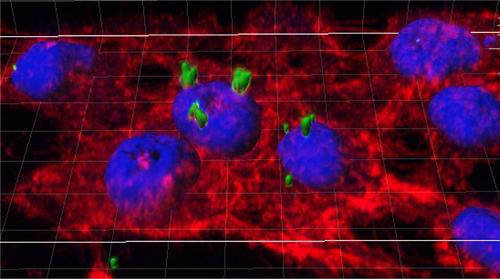Researchers from the Universitat Autònoma de Barcelona (UAB) have designed a novel carrier called as ‘bacteria inclusion bodies’ to deliver proteins with therapeutic effects.
 Nanopills developed by UAB researchers for Advanced Cell Therapies
Nanopills developed by UAB researchers for Advanced Cell Therapies
Bacteria inclusion bodies are stable insoluble nanoparticles present commonly in recombinant bacteria. They have a large number of functional proteins, which are useful in biomedical and industrial applications.
The research team, headed by Antoni Villaverde from the UAB’s Institute of Biotechnology and Biomedicine in partnership with the spanish Centro de Investigación Biomédica en Red en Bioingeniería, Biomateriales y Nanomedicina (CIBER-BBN), has studied the use of the inclusion bodies as natural ‘nanopills’ with a capability to pierce cells and perform biological activities. The nanopill concept is an emerging platform for administering drugs, and demonstrates the effectiveness of microbial materials in medicine.
In a multi-disciplinary study conducted at UAB, a team of scientists headed by Dr Esther Vàzquez used the bacteria Escherichia coli’s inclusion bodies as nanopills, which were packed with four proteins having various therapeutic effects. The bacteria were then made to contact with mammals’ cell cultures under conditions similar to that of real clinical pathologies, where they were able to recover their activity.
UAB and CIBER-BBN patented the therapeutic application of inclusion bodies and licensed the technology to Janus Developments, a biotechnology firm currently investing in the product development.
UAB researcher Ester Fernández conducted experiments to verify the tolerance of the technology’s administration in vivo. The study results and nanopill have been described in detail in the journal, Advanced Materials.